20. Buenos Aires
Urban area: 13.5 million people
City: 2.9 million people
According to the 2012 edition of Demographia's World Urban Areas index, the capital of Argentina is the second largest urban area in South America after Sao Paulo. Its per capita income is among the highest in Latin America and its quality of life is ranked number one in the region, although some estimates say that 4 million people in the area live in poverty. It is also reportedly the most visited city in Latin America.
Urban Detail — Buenos Aires is known for its European style architecture and culture, a legacy of the Spanish and Italian origins of most of the population. It has the highest concentration of theatres in Latin America and is the birthplace of Tango music and dance. (Source: Reuters) 19 more after the break...
19. Karachi, Pakistan
Urban area:13.8 million people
City: 13.0 million people
Students attend a rooftop evening class in a private school in a slum area in Karachi, the largest city, main seaport and financial center of Pakistan. Karachi is the second largest city proper in the world after Shanghai and accounts for about 20 percent of Pakistan’s GDP. It is growing rapidly due to rural-urban migration.
Urban Detail — After Pakistan won independence from the British and separated from India Karachi’s population increased hugely as hundreds of thousands of Muslim migrants from India settled there, transforming its demographics and economy. (Source: Reuters)
18. Kolkata, India
Urban area: 14.4 million people
City proper: 4.5 million people
Kolkata, formerly Calcutta, sits on the banks of the River Hooghly which empties into the Bay of Bengal. The city is India’s oldest port and the commercial and cultural capital of East India, with the third largest economy in South Asia after Mumbai and Delhi. Here Kolkata students smear each other with colored powder during Holi, the Indian festival of colours heralding the beginning of Spring.
Urban Detail — Much of the city was originally wetland and swamp. The land was reclaimed over the centuries to accommodate the rapidly increasing population. Kolkata is where Mother Teresa began her work caring for the poor and the sick. (Source: Reuters)
17. Los Angeles, USA
Urban area: 14.9 million people
City: 3.8 million people
Los Angeles is the second biggest city in the United States by land size. An extensive grid of freeways, boulevards, and smaller neighborhood roads spans the city.
Urban Detail — Los Angeles is home to the largest Mexican, Guatemalan, and Korean populations outside of those countries. Almost 40 percent of the city’s population was born outside the United States. (Source: Reuters)
16. Dhaka, Bangladesh
Urban area: 15.4 million people
City: 7 million people
One of the fastest growing cities in the world, Dhaka has attracted economic migrants from all over Bangladesh. As many as one quarter of Dhaka’s residents live in crowded slums, according to the World Bank.
Urban Detail — Dhaka is known as the rickshaw capital of the world as most people get around using cycle rickshaws or autorickshaws. (Source: Reuters)
15. Moscow, Russia
Urban area: 15.5 million people
City: 11.8 million people
By far Europe's biggest city, Moscow has been swelled by rising numbers of migrants from other parts of Russia and the former Soviet states, attracted by higher living standards. Russia’s expanding economy has attracted people to the capital which is becoming richer.
Urban Detail — With more passengers than New York City and London combined, Moscow has the world’s second busiest metro system after Tokyo. It serves more than nine million people a day, has 182 stations, and 301 kilometers (187 miles) of routes. (Source: Reuters)
14. Guangzhou-Foshan
Urban area: 16.8 million people
City: 11 million people
Historically known as Canton, Guangzhou is China’s third largest city and located on the Pearl River in southern China about 120 kilometers northwest of Hong Kong. It is a critical trading port and capital of China’s industrial and manufacturing province of Guangdong, which has been one of the fastest urbanizing areas of the world for many years.
Urban Detail — Ahead of the Asian Games in 2010 many buildings were demolished to make way for more modern developments as property prices soared and developers poured billions into real estate. (Source: Reuters)
13. Mumbai, India
Urban area: 16.9 million people
City: 12.5 million people
Mumbai–called Bombay until the name was changed in 1995–is the commercial and movie capital of India and has attracted millions of migrants from the countryside. With high birth rates and the continued influx of migrants, Mumbai’s population is expected to grow rapidly in the future.
Urban Detail — Over half of the city’s population lives in slums. Poor infrastructure and widespread poverty make it very difficult to meet the demands of an ever-growing population. (Source: Reuters)
12. Osaka-Kobe-Kyoto
Urban area: 17 million people
City: N/A
Made up of the commercial and industrial city of Osaka, the port of Kobe, and the ancient cultural capital of Kyoto, the Kansai megacity encompasses all aspects of Japanese life from the neon lit Dotonbori shopping district in Osaka pictured here to the Zen gardens and geisha houses of Kyoto and is home to about 15 percent of Japan’s population.
Urban Detail — Large parts of the city of Kobe were destroyed in the Great Hanshin Earthquake of 1995 which claimed over 6000 lives and caused about 100 billion dollars in damages. The disaster was widely seen as a major wake up call for the Japanese emergency services and led to improvements in construction that paid dividends during the massive 2011 earthquake. (Source: Reuters)
11. Beijing, China
Urban Area: 17.3 million people
City: 11.7 million people
China’s capital hosted a spectacular if controversial Olympic Games in 2008. Despite spending billions to clean the city's air, average air pollution levels remain five times above WHO safety standards.
Urban Detail — Bicycles are a common means of transportation for most people in Beijing. But the number of cars is increasing by an estimated 15,000 every day. (Source: Reuters)
10. Cairo, Egypt
Urban Area: 17.8 million people
City: 6.7 million people
Located on the banks of the Nile River, Cairo is the biggest urban area in Africa and in the Arab world. Bustling bazaars and narrow lanes, the smells of spices and pipe smoke, the call to prayer five times a day and the cacophony of horns–this is Cairo.
Urban detail — The city is also known by the name “Al-Qahirah”, “The Triumphant” in Arabic. It is home to the oldest and biggest music and film industry in the Arab world. (Source: Reuters)
09. Mexico City, Mexico
Urban area: 19.4 million people
City: 8.8 million people
Mexico City is ten times the size it was in 1940. The Mexican capital generates a quarter of the country's wealth. However, with low population growth, the number of people in retirement is expected to rise rapidly.
Urban Detail — Security, air pollution, and traffic congestion are prime concerns in Mexico City. These problems result from poor resource management and unstructured growth. (Source: Reuters)
08. Sao Paulo, Brazil
Urban area: 20.2 million people
City: 11.2 million people
Sao Paulo is Brazil’s richest city and the most important financial center in Latin America. Poverty and crime, however, remain a problem. An average of 6,000 people are murdered annually in Sao Paulo.
Urban Detail — Sao Paulo is a very young and ethnically diverse city. More than half of its population is under twenty years old, and it is home to the largest Japanese community outside Japan. (Source: Shutterstock)
07. New York, USA
Urban area: 20.4 million people
City: 8.2 million people
New York City, especially Manhattan, is a role model for balancing dense development with good public transport and access to open spaces. New York is the only American city where most households do not own a car.
Urban Detail — New York has been a gateway to America ever since the first immigrants came to the U.S. Over 170 languages are spoken there today. No single nationality or ethnicity dominates the city’s culturally diverse population. (Source: Reuters)
06. Shanghai, China
Urban area: 20.8 million people
City: 17.8 million people
Shanghai has become China's financial and commercial center and is ranked as the planet's largest city proper. It has one of the world’s busiest ports and the world’s most extensive bus system with more than one thousand lines.
Urban Detail — Shanghai has one of the world's most remarkable skylines. Thirty five structures are taller than 200 meters, including two over 450 meters, the Oriental Pearl TV Tower and the Shanghai World Financial Center. (Source: Reuters)
05. Manila, Philippines
Urban Area: 21.9 million people
City: 11.8 million people
Manila's colonial past is reflected in its architecture. Intramuros, the historic center, is surrounded by a massive wall built by the Spanish in the 16th century. Its parks and historic buildings have become a major tourist attraction.
Urban Detail — More than 3 million people in Manila live in slums without electricity, sanitation, and access to drinking water. Population density is extremely high, in some areas more than 100,000 people live on one square kilometer. (Source: Reuters)
04. Delhi, India
Urban Area: 22.2 million people
City: 11 million people
Delhi is India’s capital and recently overtook Mumbai as the biggest city by population size. It’s a place of striking contrasts. Mosques, bazaars, and narrow lanes mark the old town. New Delhi, the capital, features grand boulevards, business centers, and shopping malls.
Urban detail — Twenty languages are spoken in Delhi. The official and most widely spoken language is Hindi, followed by Punjabi. English is used for business and other official purposes. Urdu is common among the Muslim community. (Source: Shutterstock)
03. Seoul-Incheon, South Korea
Urban area: 22.5 million people
City: 10.5 million people
Seoul has grown rapidly since the Korean War (1950-53). Today, nearly half of the country’s population lives in and around Seoul. Seoul has made remarkable progress in combating air pollution and is one of the cleanest cities in Asia.
Urban Detail — Seoul is located 50 kilometers south of the heavily armed border with North Korea. The city is in range of North Korean artillery. Plans to move the capital further south have already caused much debate. (Source: Reuters)
02. Jakarta, Indonesia
Urban area: 26 million people
City: 9.6 million people
Jakarta has been booming since 2005 after suffering economic crises and disasters like floods and earthquakes in recent decades. Jakarta's economy has boosted Indonesia’s economy to a growth rate of 6 percent.
Urban Detail — Despite many wide roads, Jakarta suffers from terrible traffic congestion. To reduce traffic jams, some major roads have a 'three in one' rule during rush hours, prohibiting fewer than three passengers per car. (Source: Reuters)
01. Tokyo, Japan
Urban area: 37.2 million people
City: 8.9 million people
Greater Tokyo is the largest urban agglomeration in the world, swallowing up the neighboring cities of Yokohama, Kawasaki, and Chiba. Despite its size, Tokyo has very efficient public transportation, which accounts for almost 80 percent of all journeys.
Urban Detail — Tokyo Bay has been gradually filled up to create more living space. Odaiba, an island made from waste, has become one of Tokyo’s most interesting tourist spots and destinations for day trippers. (Source: Miki Yokoyama)










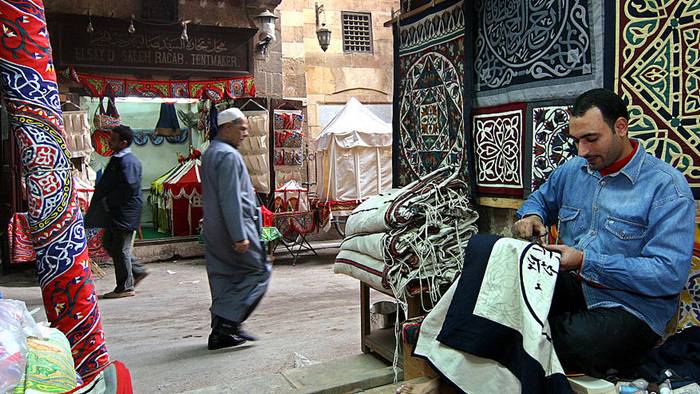

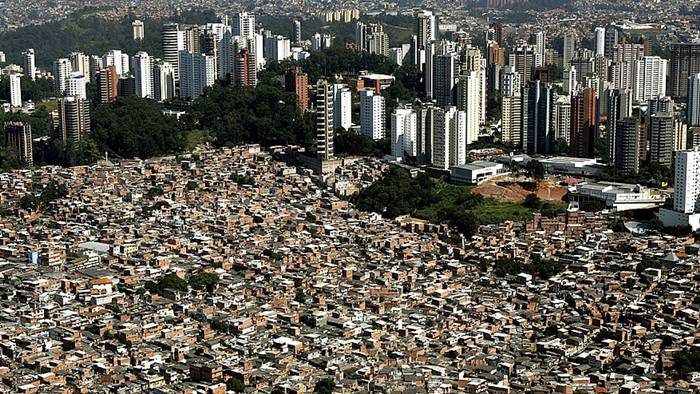
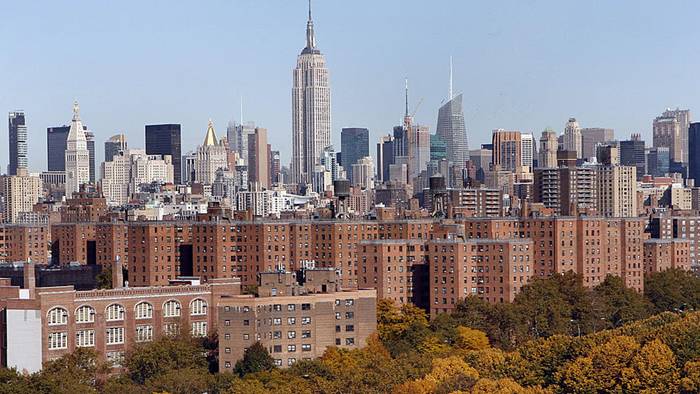


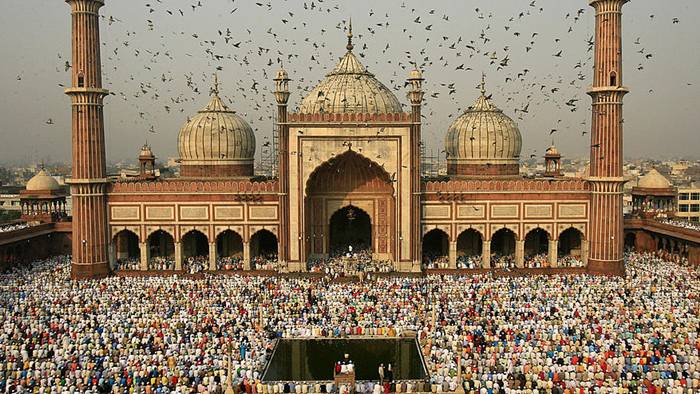

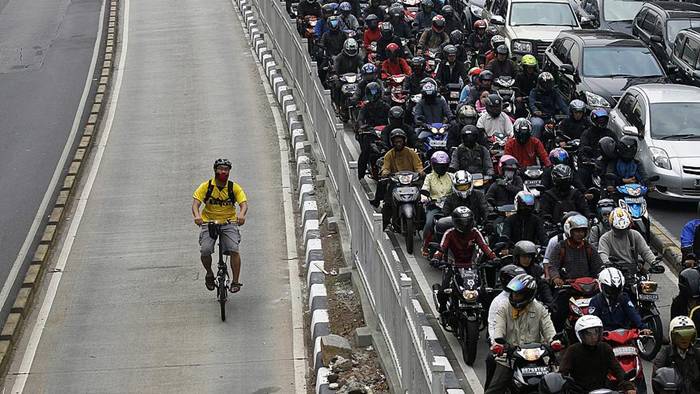

0 yorum:
Yorum Gönder